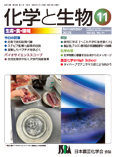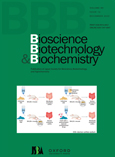[on September 23, 2018]
Visionary NOUGEIKAGAKU 100
Symposium on Food Function Research Area: "The power of ingredients to support health function of Japanese food"
Date & venue; Kobe University on September 23, 2018
1. How to use food functionality to extend healthy life span
~ Attention to materials of Japanese food ~
Takashi Kometani, Faculty of Agriculture, Kindai University
In super aged society, extension of healthy life expectancy is an important issue. Japan has pioneered the concept of food functionality prior to the world and has led the world in this research. Health is brought about by food, exercise and rest. In this symposium, paying attention to the function of Japanese diet which is healthy one, we took up the health function of "rice", "soybean", "tea", "seafood" and "dashi", and five specialists in each field gave a lecture.
2. Rice and health: Do you happen to know that rice contains a medicinal compound?
Kiyotaka Nakagawa, Graduate School of Agricultural Science, Tohoku University
Rice is the staple food and one of the world's three major grain crops. Rice, especially brown rice, is a rich source of γ-oryzanol, tocotrienol, amino acids, fibers and minerals, which are important bioactive compounds and nutraceuticals with numerous potential health functions. In my talk, I presented our recent results of absorption, metabolism, and biological effects of γ-oryzanol, the major medicinal compound in rice bran. I also talked about the results of bio-fortification of rice bran tocotrienol. These results will be useful for improving our understanding of the physiological functions of rice and its constituents for nutritional and medicinal purposes.
3. Prevent lifestyle-related diseases of soybeans and work as complementary medicine
Mitsutaka Kohno, Research Institute for Creating the Future, FUJI OIL HOLDINGS INC.
It has been reported that soybean protein improves metabolic syndrome such as visceral fat suppression effect and blood glucose level improvement effect. Recent studies have also reported the effect of suppressing the decline in kidney function. I present not only such preventive effects but also complementary medical effects of drug treatment to patients already in the treatment stage (1. complementation effect on statin of dyslipidemia patients, 2. beneficial effects on patients with chronic kidney disease for which administration of lipid abnormality ameliorating drug is contraindicated, 3. pain relieving effects of patients with rheumatoid arthritis).
4. Functional green tea and the evaluation of functional boxed lunch on life-style disease-ameliorating effect by human clinical trial.
Mari Maeda-Yamamoto, National Agriculture and Food Research Organization, Agri-Food Business Innovation Center
We have found the anti-allergic effect of epigallocatechin-3-O-(3-O-methyl) gallate (EGCG3"Me) isolated from tea leaves. 'Benifuuki' was a tea cultivar to contain most EGCG3"Me. The human clinical studies showed that the nasal or eye symptoms of cedar pollinosis or perennial rhinitis were significantly relieved in 'Benifuuki' green tea containing 34mg/day of EGCG3"Me compared with placebo 'Yabukita' green tea that did not contain EGCG3"Me. From these results, "Benifuuki green teabag" was released as "Foods with Function Claims" as the first food which labelled anti-allergic action in 2015. Furthermore, we found the lowering effects of visceral fat and serum 1,5-anhydroglucitol level by long-term intake of functional boxed lunch with 'Benifuuki' green tea.
5. Marine products as health food materials: Their characteristic nutrients
Kazuo Miyashita, Faculty of Fisheries Sciences, Hokkaido University
Interest in functionality of marine products continues to grow year by year, due to the fact that marine products are familiar to Japanese people and prevention of disease through marine dietary means has been better understood and recognized by the Japanese public at large. In addition, solid research has gradually replaced anecdotal evidence for many marine resources, and data related to absorption, metabolism and efficacy of a wide range of marine functional and therapeutic agents has now become available. The present lecture reviews the characteristic nutritional effect of marine products, especially focusing on the nutritional impact of fish and seaweed products.
6. Importance of UMAMI taste of Japanese "Dashi" for the next generation's food.
Tohru Fushiki, Faculty of Agriculture, Ryukoku University
Although it is difficult to control the preference for oil and sugar in present children who are addictive to foods full of oil and sugar, it will be meaningful that dashi broth is added as one option. Japanese diet, which is primarily composed of rice, has low fat and many nutritional benefits. We consider that children should find the "umami" taste of dashi broth, the main factor of the Japanese traditional diet, and that this will be an effective strategy in food science approaches for prevention of lifestyle diseases.












































